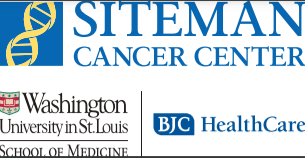- Advertise
- About OncLive
- Editorial Board
- MJH Life Sciences brands
- Contact Us
- Privacy
- Terms & Conditions
- Do Not Sell My Information
2 Clarke Drive
Suite 100
Cranbury, NJ 08512
© 2025 MJH Life Sciences™ and OncLive - Clinical Oncology News, Cancer Expert Insights. All rights reserved.
Dr Ghobadi on the Efficacy and Safety of WU-CART-007 in R/R T-ALL and LBL
Armin Ghobadi, MD, discusses the efficacy and safety of WU-CART-007 in heavily pretreated patients with relapsed/refractory T-ALL and LBL.
"In terms of outcomes, the response [rate]was very high: 91% of patients had an overall response with a composite complete response [rate] of 73%. For this group of patients, the only FDA-approved [therapy] in the second-line setting is nelarabine."
Armin Ghobadi, MD, professor, medicine, Oncology, Section of Bone Marrow Transplant; clinical director, Center for Gene and Cellular Immunotherapy, Siteman Cancer Center, Washington University, discusses key findings from the phase 2 portion of a phase 1/2 trial (NCT04984356) evaluating WU-CART-007 (WT-7), an investigational CD7-targeted CAR T-cell therapy, in heavily pretreated patients with relapsed/refractory T-cell acute lymphoblastic leukemia (T-ALL) and lymphoblastic lymphoma (LBL).
Results presented at the 2024 ASH Annual Meeting showed that the safety profile of WT-7 was consistent with expectations for this patient population, Ghobadi begins. Cytokine release syndrome (CRS) was reported in 69% of patients, with grade 3 events occurring in 31%. All instances of CRS were effectively managed and resolved, he states. Immune effector cell–associated neurotoxicity syndrome (ICANS) was uncommon; grade 1 or 2 events were reported in 8% of patients, and no instances of grade 3 or higher ICANS were observed, Ghobadi adds. Graft-vs-host disease (GVHD) was infrequent; only one case of transient GVHD was reported and subsequently resolved with treatment, he notes. These findings suggest WT-7 is a feasible therapeutic option for this high-risk population, Ghobadi says.
In terms of efficacy, patients treated with WT-7 (n = 11) experienced an overall response rate of 91% and a composite complete response (CR) rate of 73%, Ghobadi reports. The CR rate was 55%. These results are notable given the limited options available for this population, where nelarabine is the only FDA-approved therapy in the second-line setting, he explains.
Building on these findings, a global, single-arm, multicenter phase 2 pivotal trial (NCT06514794) has been launched, Ghobadi details. This trial will evaluate WT-7 in pediatric and adult patients with relapsed or primary refractory T-ALL or LBL to further confirm its safety and efficacy in a broader population, he concludes.


